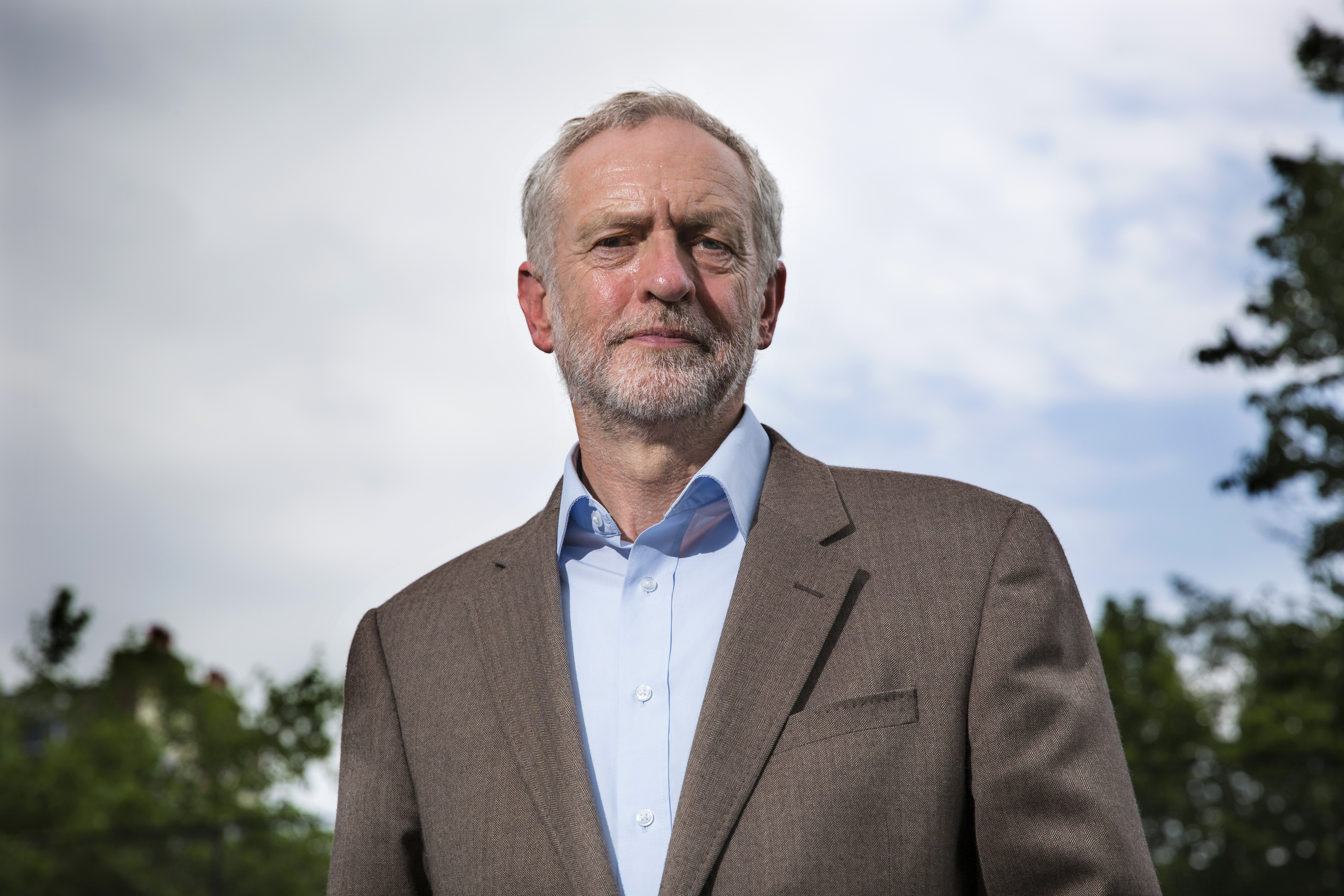The rise of Jeremy Corbyn: How austerity is killing the center-left in Britain
If the Blairites can't challenge the Tories' atrocious economic record, then leftists will do it for them


A free daily email with the biggest news stories of the day – and the best features from TheWeek.com
You are now subscribed
Your newsletter sign-up was successful
In Britain last week, the previously marginalized leftist Jeremy Corbyn rocketed to a colossal victory in an election for leadership of the Labour Party, beating his closest competitor by 40 percentage points. He's the party's most left-wing leader in decades.
There were several unique factors that led to his victory. But it's not hard to identify the roots of Corbyn's electoral appeal, which have spurred leftist politics across the developed world: the struggle against austerity. New Labour, the center-left establishment that dominated British politics under former Prime Minister Tony Blair, failed to seriously challenge the Conservative Party's austerity record, and as a result was left with little reason to exist.
It should be noted that Corbyn's victory was also enabled by a disastrous tactical error on the part of previous Labour leader Ed Miliband. He changed the party election rules from a complex weighted system to a universal poll across all party members, who could join up for a three pound fee. It's unlikely that Corbyn would have won under the old system.
The Week
Escape your echo chamber. Get the facts behind the news, plus analysis from multiple perspectives.

Sign up for The Week's Free Newsletters
From our morning news briefing to a weekly Good News Newsletter, get the best of The Week delivered directly to your inbox.
From our morning news briefing to a weekly Good News Newsletter, get the best of The Week delivered directly to your inbox.
Still, the wave of enthusiasm that swept Corbyn to victory is undeniable. Where did it come from?
Matt Yglesias at Vox attributes Corbyn's rise to the Conservative Party moving to the center on social and environmental issues, coming out in favor of gay marriage, climate policy, and universal health care — thus capturing many of Labour's voters. There's surely something to this, but the other half of the story is Labour's failure to confront the Conservatives on their economic record, particularly on austerity. Without social issues, it turned out that New Labour stood for not much of anything.
Now, in fairness to Ed Miliband, he did face a British media establishment that was utterly in the tank for austerity. And when polled, Britons said they trusted the Conservatives most on economic issues. That's likely why he chose to accept the Conservatives' frame, arguing for somewhat less austerity rather than none at all. It's difficult to overcome an entrenched narrative.
But it didn't work. Labour lost the 2015 election badly. Part of this was due to Britain's janky first-past-the-post electoral system, which dramatically over-represented the Conservative vote share. But Labour's main problem was its half-hearted position on austerity, which was neither here nor there. This can be seen in the historic collapse of Labour in Scotland, where voters overwhelmingly supported the Scottish National Party, which in addition to being opposed to British unification in general, was also adamantly against, you guessed it, austerity.
A free daily email with the biggest news stories of the day – and the best features from TheWeek.com
It is clear that a center-left party cannot win if it won't attack the center-right where it is, in fact, weakest, entrenched media bias or no. Because put frankly, the Conservative economic record since 2010 is stinking garbage, the worst since the 1930s at least. As British economist Simon Wren-Lewis demonstrates, under Conservative government British GDP per head has grown at less than half the postwar average — and that coming on the heels of a massive economic crisis, when catch-up growth should be dramatically above average. Average incomes have only just recently reached pre-crisis levels — seven years and counting of potential growth flushed straight down the toilet.
The reason is the Conservatives' 2010 austerity program. There is simply no other explanation. Cutting government spending (and/or raising taxes) means pulling aggregate demand out of the economy. That's no trouble if the central bank can compensate by reducing interest rates, but by 2009 the Bank of England had gone as low as it could go. Conversely, there was no positive reason to go austere in the short term — there was (and is) no market pressure on British bonds, and any Greece-style debt crisis would be impossible in a country that controls its own currency.
So in the aftermath of its election disaster, the Labour electorate rooted around for someone who would ditch Ed Miliband's muddled "yes, but" message, and found Jeremy Corbyn. Unsurprisingly, he's pretty far out on the party's left wing — because, as with the U.S.'s Bernie Sanders, it usually takes a committed radical to challenge an entrenched orthodoxy.
That doesn't mean he's 100 percent right on every issue — in particular, he ought to upgrade his "People's QE" from a money-financed green infrastructure bank to literal cash transfers to individuals. But the overall thrust of his politics is dead on. Austerity is wrong, it is the problem, and the Conservatives are responsible. If New Labourites are upset at the direction their party has taken, their failure to articulate that simple truth is to blame.
Ryan Cooper is a national correspondent at TheWeek.com. His work has appeared in the Washington Monthly, The New Republic, and the Washington Post.
-
 6 of the world’s most accessible destinations
6 of the world’s most accessible destinationsThe Week Recommends Experience all of Berlin, Singapore and Sydney
-
 How the FCC’s ‘equal time’ rule works
How the FCC’s ‘equal time’ rule worksIn the Spotlight The law is at the heart of the Colbert-CBS conflict
-
 What is the endgame in the DHS shutdown?
What is the endgame in the DHS shutdown?Today’s Big Question Democrats want to rein in ICE’s immigration crackdown
